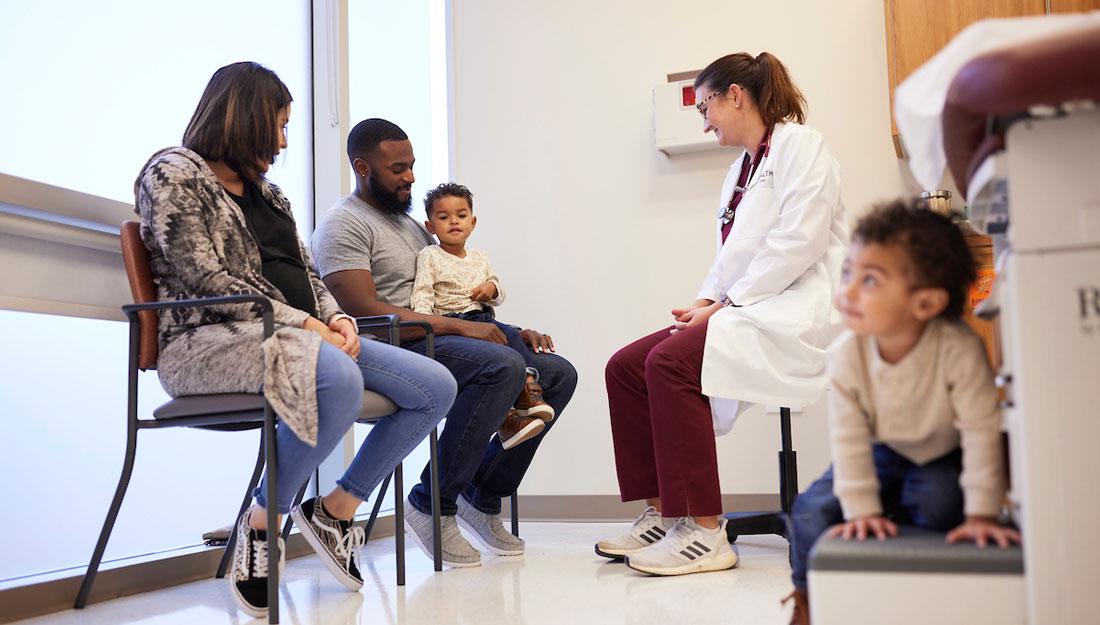AI Medical Receptionist Modernizing Doctor Appointments, Poised To Improve Patient Care Nationwide
Texas A&M teams with Humanate, an NVIDIA Inception company, to advance “Cassie,” which uses facial recognition for more human and empathetic interactions.
A virtual medical receptionist named “Cassie,” developed through research at Texas A&M University, is transforming the way patients interact with health care providers.
Cassie is a digital-human assistant created by Humanate Digital, a startup founded by three Aggies, including Dr. Mark Benden, professor in the Texas A&M School of Public Health and director of the Center for Worker Health.
The artificial intelligence-powered avatar can speak more than 100 languages, including American Sign Language, and uses facial recognition to mimic human emotions, making interactions feel more natural and comforting.
Cassie is being tested in several clinics to assist with administrative tasks such as checking in patients, requesting medical records and guiding users through paperwork. “We’re not trying to replace doctors or nurses,” Benden said. “We’re focused on the administrative side — tasks that are repetitive, time-consuming and not the best use of a clinician’s time.”
At the 2025 Texas A&M New Ventures Competition last month, Humanate took home the grand prize, including $35,000 in funding and multiple investment offers, for its work on the Cassie technology.
Using Facial Recognition To Determine Patient Mood
A key differentiator from early research is that Cassie was developed to be emotionally responsive, using facial recognition to read the user’s expressions and adjust its tone accordingly. “Our goal is to provide a happy digital human to have a conversation with you. She can smile, interact, tell dad jokes — even mimic your mood. But if you’re on a serious topic, like a cancer diagnosis, she can become more serious, more focused,” Benden said.
Unlike traditional kiosks or chatbots, Cassie offers a two-way interaction that feels more like a conversation than a transaction.
Benden said the technology has potential applications in pediatric care — Humanate is developing a cartoon-style avatar named Oliver to help children navigate medical procedures. “Oliver would guide a child through something that might be kind of scary and stay with them throughout, on a mobile device, for comfort and engagement,” Benden said.
An Idea So New, Technology Had To Catch Up
Cassie was conceived during the COVID-19 pandemic as a tool to train remote workers but has since evolved into a sophisticated AI assistant thanks to advances in large language models and a key partnership with AI technology innovator NVIDIA.
“We started this five years ago to figure out a way to train remote office workers with the same confidence and quality we would have if we had a professional trainer in the room,” said Benden, who co-founded Humanate with Carlos Rodriguez, company CEO and an A&M engineering graduate; and Leslie Jebson, who earned his MBA from Mays Business School and serves as company consultant.
“Before large language models, we had to guess what AI assistants might say and manually enter those responses,” Benden said. “Now, Cassie can understand various accents and multiple languages, and provide more flexible and intelligent responses.”
Rodriguez said Humanate Inc. is revolutionizing the patient-to-clinician interaction. “Our agentic AI technology is automating labor intensive work flows to increase access and produce better healthcare outcomes,” he said.

Cassie is poised to ease health care’s administrative burdens, allowing for more time with patients.
Reducing Administrative Burdens, Empowering Health Care Facilities
Cassie is a potential solution to a growing problem in health care: administrative overload and staffing shortages, especially in rural or underserved areas. “These are jobs that turn over very often — 200 to 300% in a typical year,” Benden said. “They’re lower paying, and most days are pretty much the same; humans don’t necessarily like those kinds of jobs, and that’s why turnover is high.”
Cassie can work 24/7 without breaks, sick days or distractions.
While Cassie may not immediately lower health care costs for patients, the technology can help clinics operate more efficiently — particularly those in financially vulnerable areas.
“A lot of smaller clinics — especially without federal money — don’t make sense to run as a business; you would close them,” Benden said. By reducing administrative burdens and freeing up clinicians to focus on patient care, Cassie could help stretch limited resources further.
“I think we can improve the quality of care, get more doctor-and-nurse time with the patient instead of with paperwork,” he said.
Partnership With NVIDIA
The project advanced when Humanate collaborated with NVIDIA to run large-scale simulations that enhanced Cassie’s capabilities. This partnership helped move the technology from a research prototype to a deployable product. Humanate has licensed the Texas A&M-filed patent for its receptionist-focused AI, one of the early filings in the emerging field of agentic AI.
“If that patent pans out, then we hold something that’s highly significant in the field,” Benden said.
For Texas A&M, Cassie represents more than just a technological achievement — it’s a testament to the university’s role in fostering innovation with real-world impact. “We think health care is primed for this,” Benden said. “They need to be disrupted because they’re struggling to meet the needs.”
Rodriguez hopes Cassie will not only streamline operations but also improve the patient experience, especially for those who find traditional systems confusing or impersonal. “We’ve had an amazing response from patients. Some of the older patients, in particular, have written to us and said, ‘It’s so much easier for me to talk to Cassie than to try to navigate confusing websites and mountains of paperwork,’” Rodriguez said. “That’s been very encouraging.”
About Texas A&M Innovation
Texas A&M Innovation at College Station works with a diverse array of partners – including entrepreneurs, investors, technology incubators, and large enterprises – to improve lives by commercializing innovations from The Texas A&M University System. Texas A&M research generates more than 300 new technologies each year, providing abundant and varied opportunities for industry collaboration. Learn more about the Texas A&M Innovation technology portfolio.
